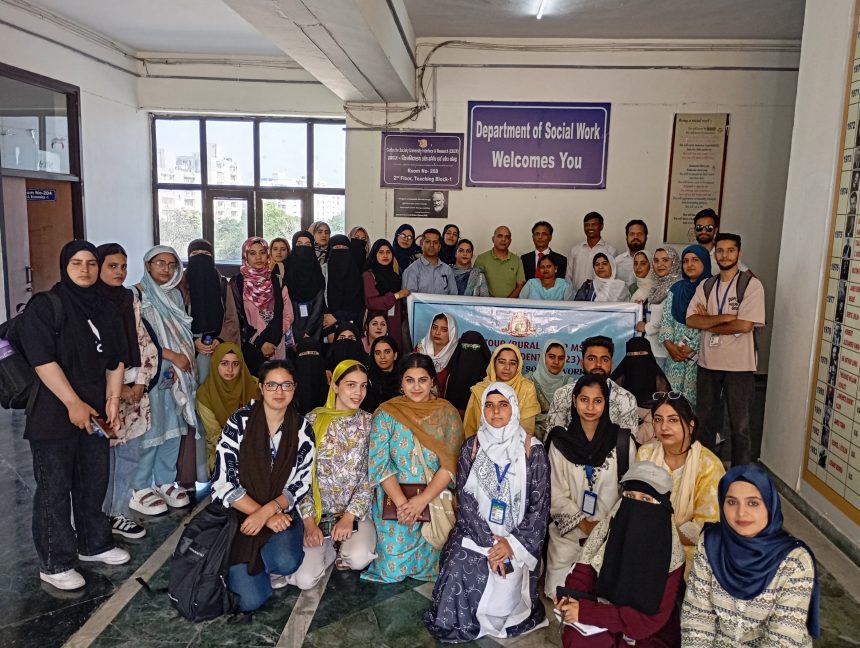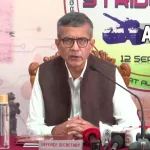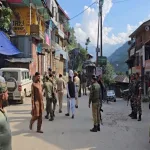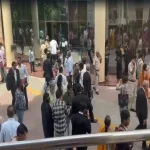Srinagar, Nov 02: To provide an opportunity for experiential learning, bridging the gap between academic knowledge and grassroots social work interventions, the University of Kashmir (KU), recently concluded an enriching Fieldwork Tour/Rural Camp to Chandigarh, Patiala and Sonipat, Haryana.
The programme was organised by the varsity’s Department of Social Work in collaboration with the Rajiv Gandhi National Institute of Youth Development (RGNIYD) in Chandigarh.
The tour comprising a group of forty-two postgraduate students accompanied by faculty and staff from October 19 to 27, highlighted the critical roles of various governmental and non-governmental organisations, offering practical insights into social work applications across diverse communities.
In a statement, KU Vice Chancellor, Prof Nilofer Khan, underlined the tour’s value in enriching students’ educational journeys.
“This initiative underscores our commitment to holistic education, where students gain hands-on exposure to real-world social challenges, which is essential for developing empathy and professional skills in social work,” she said.
The programme included a series of interactive sessions with RGNIYD professionals, giving students insights into socio-economic issues affecting India’s youth.
Students also engaged with faculty and scholars from RGNIYD’s Departments of Development Studies and Public Administration.
KU Registrar Prof Naseer Iqbal, said such interactions provide students with a unique perspective on youth development and the importance of social policies.
“Such experiences are instrumental in shaping socially responsible professionals,” he added.
Special Secretary to KU VC and Joint Registrar (Budget), Dr Ashfaq A Zarri, commended the collaboration, highlighting its role in broadening students’ understanding of social work.
“Collaborative initiatives like these encourage students to learn beyond textbooks and develop a nuanced understanding of community-driven development,” he said.
The itinerary featured visits to various institutions in Chandigarh, providing students a firsthand experience of social work initiatives and the efforts of on-ground social organisations.
At Punjabi University Patiala, students explored the rural development landscape, gaining insights into grassroots social work challenges and innovations.
They also visited a drug de-addiction center and a school for the deaf and blind, which emphasised the significance of inclusive social work practices.
A highlight of the tour was the students’ active participation in the National Social Work Congress at BPS Women University, Sonipat, Haryana. Here, they attended workshops, exchanged ideas, and engaged with leading national and international figures in social sciences.
“The congress allowed our students to showcase their research, network with peers, and gain invaluable insights into current social work trends,” said Prof Shazia Manzoor, Head, Department of Social Work.
Dr Wakar Amin, the tour in-charge, expressed pride in the students’ dedication and enthusiasm, noting how local experiences, like using public transportation in Chandigarh, offered additional cultural insights.
“These interactions enhanced students’ understanding of social diversity, encouraging a holistic perspective on urban challenges and public services,” he said.








